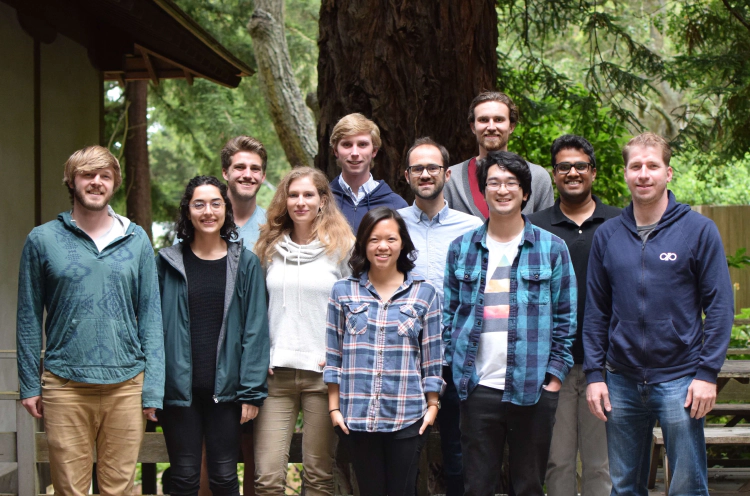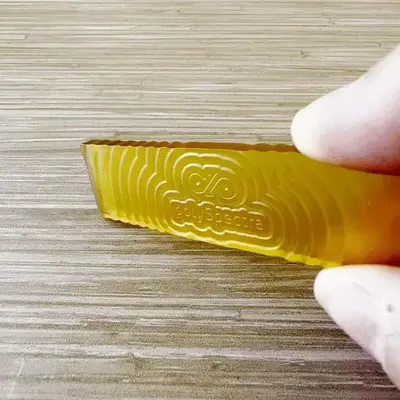One of the most fun (and philosophical) parts of starting your own organization is finding your founding values. Today, entrepreneurship is easier than ever, cooler than ever, more valued than ever. As a result, I think that many people are jumping in without any real sense of why. Why is the most important part.
The value discovery process I’m going to outline is relevant to anyone starting a company. However, I think it is particularly relevant to the PhD to CEO for a few reasons:
- I don’t think that very many physical science PhDs will have had much (if any) prior experience in a value-driven organization.
- Deep tech startups take a long time. You need a team that is aligned and motivated for that journey.
- Physical science innovations arguably have more business model optionality than software/service, by virtue of being further upstream in the universe. For example - there are way more variations on how two chemicals companies might collaborate than two software companies. In the face of this optionality, you will need to decide early on what you stand for - because the playbook has too many possibilities.
polySpectra recently underwent a “Values Revamp”. I’m going to share our process, with the caveat that I didn’t invent any of this. I have included a link to my favorite resources at the bottom of the article. I thought it would be helpful to summarize the process, and give snapshots of how it evolved at polySpectra. I don’t claim that this is the best approach - but I do claim that your organization will be better off after taking time to discuss values.
Step One: What is important to you? (2 hrs to 2 years)
- How does your dream company operate?
- What does the organizational chart look like when it is done?
- How big is it when it is done?
It took me about a year to decide that I really wanted to start a company. It took me another year to outline what that organization might look like. And I’m still figuring it out, four years deep now.
Here is what I wrote as polySpectra’s Founding Values before we first spun out:
polySpectra’s Founding Principles:
- Innovation: creativity, intellectual freedom, research & development capabilities
- Sustainability: safety, efficiency, renewable, responsible growth, sensible scale, local investments, local manufacturing
- Co-creation: open innovation, customer experience & participation, favor open-source solutions
- Education: employees continue to learn, educate the world
- Impact: utility, quality, meaningful products, solve real problems
- Diversity: personal, chemical, cultural
If you have co-founders, this is clearly a discussion that you need to have. I personally think that each co-founder should be able to answer these questions on their own first, then you can meet to compare notes, see where the visions differ and where you might be able to compromise.
Step Two: Honest conversation with leadership team. (4 hours to 4 weeks)
Step two is written as if you have a team bigger than just the co-founders, but it is probably a worthwhile exercise even if you don’t have any employees yet.
- What do these values mean to us?
- Are we actually living our values?
- What would it mean to live them?
What I realized about 18 months after writing those values down was that my Founding Values was really just a document that people were supposed to read in their first week. As a team, we didn’t often discuss them. I’m pretty sure many people on the team forgot that they existed. We had been very successful as a R&D team, but we were struggling to make the transition into a product-oriented company. We needed a reboot. Values was the place to start.
Here’s what I did. I organized a 2-hour meeting with the directors at the company (3 people plus myself). We discussed, critiqued and clarified the values that I had originally written. Afterwards, each director was responsible for writing a short description for two of the six values - their interpretation of what those values meant to the company.
Step Three: Retreat with the entire company. (2-4 hours dedicated to values)
Step three is written as if you have a team of at least 6. If you’re smaller, I think the questions are still valuable, but maybe not the structure.
Now it was time to get feedback from the entire team. We took this offsite - in an attempt to break out of our everyday habits. Here’s our agenda from the values portion of the day. (This actually took closer to 3 hours, we were ambitious with the schedule.)
Discussion #1 - 30 min - Groups of 3 - Raymond leaves
- What excites you about this exercise?
- Do these values feel right?
- How might they be altered or improved?
- Save responses on post-its or something similar, to be used in later re-draft.
Discussion #2a - 30 min - Groups of 3 - Raymond leaves
- Where are we living these values?
- Where are we not living these values?
Discussion #2b - 30 min - Full group
- Where are we living these values?
- Where are we not living these values?
Discussion 3 - 30 min - Full group
- What systems do we need to put in place (or alter) to live these values?
One important note here is that I was not allowed to be part of the first two discussions. I wanted the sub-group discussions to be as candid as possible, without anyone filtering their comments based on what they thought that I wanted to hear.

Step Four: Revise. (2-4 hours)
The most important part of the offsite is the follow-through. The team needs to know that action is being taken based on the feedback from the offsite. If you just continue with business-as-usual, you wasted your offsite time and signaled to your team that this is not serious.
I revised the values based on the discussion at the offsite. One interesting anecdote: we realized that ‘intellectual freedom’ was directly in conflict with a ‘disagree and commit’ decision-making process that we needed to better execute on our product development. It doesn’t mean that all of a sudden we stop valuing intellectual freedom, but instead realize that there are stages and processes where execution is more important than freedom.
We clarified that, to us, innovation = invention + execution. We also had a long discussion on the idea of ownership. In the end, I realized that we needed to add ‘ownership’ as a 7th founding value. (Our revised values are at the bottom of this post.)
Step Five: Implement. (1-4 lifetimes)
Implementation is the hard part. It never ends. We’re still in the process of building new systems that reflect our values. I can’t tell you how you should do it. I can tell you that you should make sure that values are part of your major decision-making processes.
polySpectra’s (revised) Founding Values:
Each of the seven values has a phrase, quote(s), description, and link(s) to related writings on the subject.
Innovation
Innovation = Invention + Execution
“The world needs dreamers and the world needs doers. But above all, the world needs dreamers who do.” - Sarah Ban Breathnach
polySpectra was founded to apply a chemical discovery to real-world problems. The success of polySpectra is hinged on continuous innovation in both technology and business. In other words, innovation is our key differentiator.
The creativity and intellectual freedom of academia is ingrained in our culture. We value inventive ideas as well as the ability to execute. Both are needed to translate into significant change for the good. We do our utmost to foster a creative environment that encourages the exchange, debate, and support of ideas.
Sustainability
Safety is sustainability
“Our favorite holding period is forever” - Warren Buffett
“The grandchildren should not bear the debts of the grandparents.” - NN Taleb
The long term health of polySpectra will be impacted by how we manage our team, make financial decisions, and, in a broader sense, take care of our community and environment.
We favor deliberate, self-driven work with time taken away for rest and recharging over burning out bright and fast. Being flexible and allowing people to manage their own schedule, tasks, and location enables them to work in the way that is best for them. We favor manageable growth that comes with reachable expectations and reasonable risk. We readily invest in the resources that will help us succeed.
Our success is predicated on the health of our planet and stability of our society. We support each other in taking actions that reduce our environmental impact. We support our community by working with local partners and manufacturers, and by being good neighbors in the communities of which we are a part.
Co-Creation
Build it together
“No matter who you are, most of the smartest people work for someone else.” - Bill Joy
“If you want to go quickly, go alone. If you want to go far, go together.” - African proverb
Externally, co-creation means actively collaborating across our ecosystem to develop solutions and products. We can move faster and operate in a more capital-efficient manner if we co-create with partners. We can create better products that provide greater value if we co-create with customers.
Internally, co-creation means transparency - we minimize information silos and are open to suggestions from any part of the company. Apple’s infamous secrecy where different teams aren’t trusted to talk with each other is what happens at the opposite extreme of the spectrum.
- https://medium.com/@rawwerks/please-share-your-failures-c4d62615112a
- https://medium.com/@rawwerks/rip-materialsgirl-6d06a726dd97
Education
Never stop learning. Always be teaching.
“Give me six hours to chop down a tree and I will spend the first four sharpening the axe.” - Abraham Lincoln
Continuous innovation at polySpectra is only possible with continuous learning. Skill and knowledge development is important for our team as individuals, as well as for enabling future innovation. We support and actively encourage activities that help our team to acquire new knowledge and skills. You should leave polySpectra wiser than when you started.
Teaching is not our primary purpose, but it is important to our long-term viability as a business. By sharing our thoughts and learnings as we build our business, we generate optionality from the audience that we create along the way. In other words, those readers might one day become customers, investors, employees, partners, suppliers, etc. In the context of marketing, high quality content will teach our customers something that they did not know before they found us.
- https://medium.com/@rawwerks/the-teaching-economy-9087e8ecdc6f
- https://medium.com/@rawwerks/an-open-source-stack-for-physical-science-startups-c83266852efc
- http://rawwerks.com/sla-utility/
- https://medium.com/@rawwerks/ergodic-entrepreneurship-bec56dbee4c5
Impact
Make it real.
“A life is not important except in the impact it has on other lives.” - Jackie Robinson
“Good ideas are always crazy until they’re not.” - Larry Page
“I would like to die on Mars. Just not on impact.” - Elon Musk
Our product has the potential to change manufacturing globally. It can reduce the barrier to entry for thousands if not millions of would-be inventors. It can increase design flexibility and decrease wasted matter and time in the product development lifecycle for manufacturers large and small. It can unlock the creation of new products with light-weighting geometries that reduce environmental impact and open up applications that have not yet been conceived. Our potential impact is a superpower that drives us and unites us.
Hight impact strength => high impact.
Diversity
Everything is interconnected.
“1st: If I’m not for me, who am I? Nobody! 2nd: Yet, if I’m only for me, what am I? Nothing!” - Dr. Bronner
“There are no facts, only interpretations.” - Friedrich Nietzsche
“One of my core values is diversity of everything.” - Brad Feld
There are many types of human diversity, from the more obvious age, technical, gender, to the less obvious experiential, world view, and economic background. A diverse culture stems from both hiring and inclusion and our other core values support these, including sustainability (how we do work) and co-creation (transparency). Diversity is a core value in that we continue to consciously explore what this means as a part of our decision-making.
Chemical diversity is also a founding value. Literally, this means that we are attempting to unlock new product capabilities through new chemical functionalities. Figuratively, this means that we are open-minded to incorporating a spectrum of scientific possibilities, whether or not we invented them.
Ownership
Own your work.
“When a team takes ownership of its problems, the problem gets solved. It is true on the battlefield, it is true in business, and it is true in life.” - Jocko Willink
“The only thing you sometimes have control over is perspective. You don’t have control over your situation. But you have a choice about how you view it.” - Chris Pine
The cost of ownership is accountability. If you see something, say something. Even better, do something. Owning your work means taking responsibility for problems, even if they aren’t your fault. It means being mindful of the work that you create for others when you don’t take the responsibility to directly address issues.
“Owning your work” also has more literal translation: our employees are owners of polySpectra. You are expected to think and act like an owner. What is in the best interest of the organization? Help build a place that embodies these values. Help make it real.
I hope this is helpful. Here is a list of the resources that were most helpful to me during my value-discovery process: http://phdtoceo.com/values-resources












